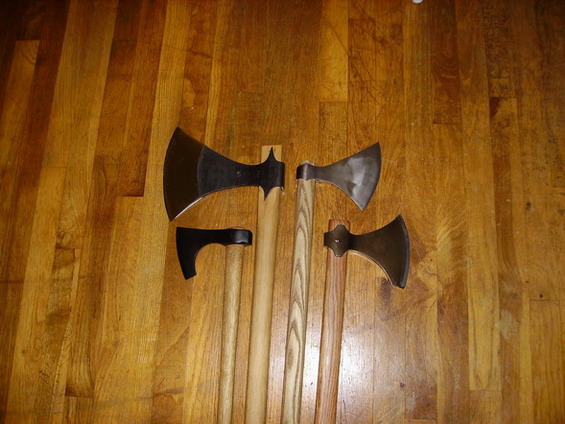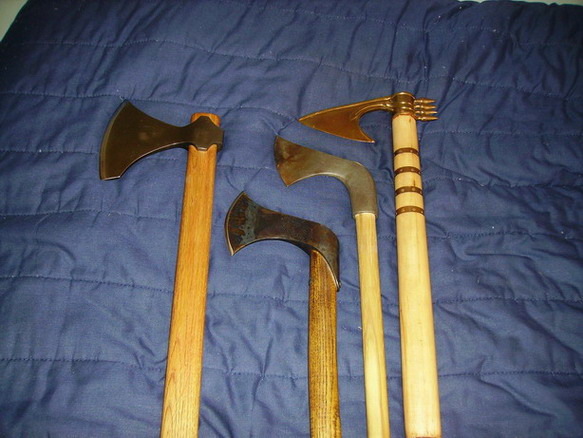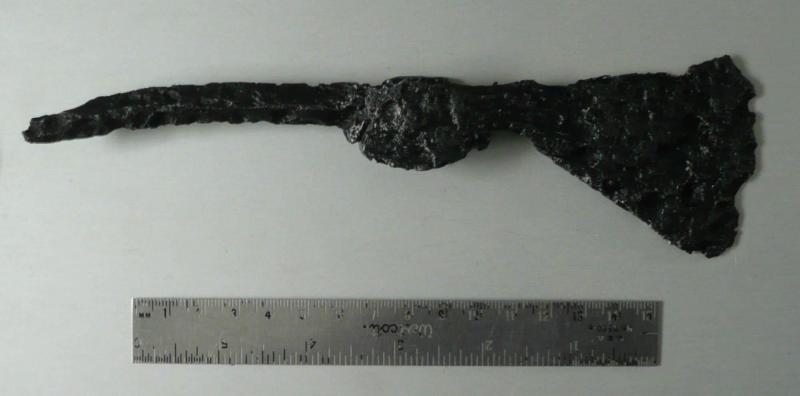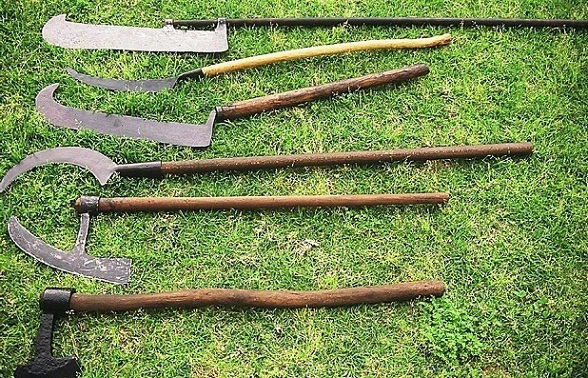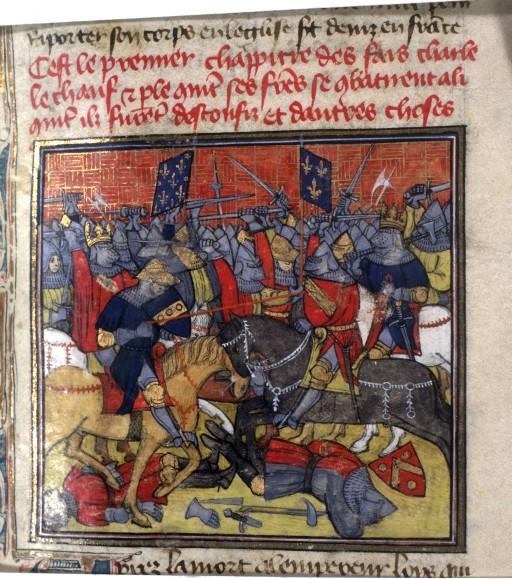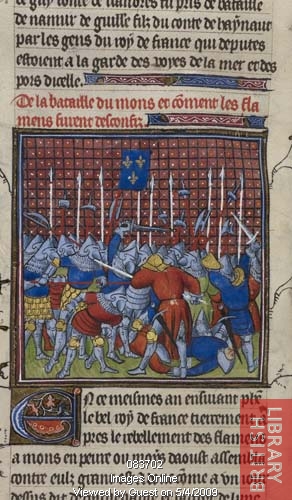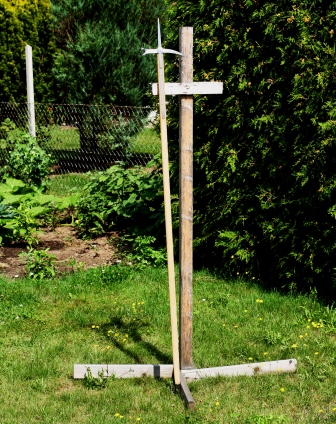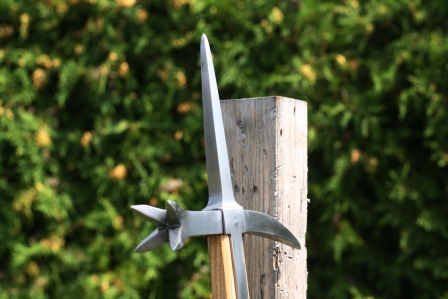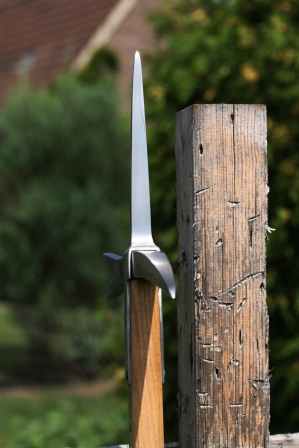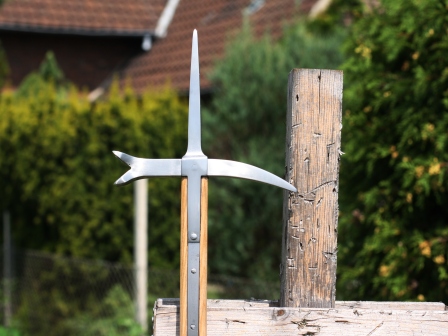Posts: 21 Location: Wiltshire UK
Sun 07 Aug, 2011 2:52 pm
One of the problems is that these tools are virtually unknown in the English speaking world. Secondly they are virtually unchanged in shape since the Middle Ages or even earlier. Thirdly French edge tool makers (taillandiers) continued forge welding of tools in small rural forges well into the 20th century. The situation was similar in other European countries. A 1960's survey of the Balkans undertaken by a French university discovered medieval tools and technology in everday use..
Les outils dans les Balkans du Moyen Age à nos jours. Coffret 2 volumes - Giustina Ostuni - 1986 - EHESS
(EHESS = L'école de haute études en sciences sociales - Paris - Department of Ethonolgie et Anthropologie)
Bernard Solon, Maison Alexis in Orléans (France), although well into his 70's, and in semi-retirement, still forge welds the blades of his vineyard hoes, incorporating a thin layer of harder, wear resistant high carbon steel into the medium carbon steel blade. As the softer steel wears away it exposes the harder core, making them self sharpening... His grandfather, who founded the forge, taught him this method, so it was still being practised after WW11....
I have the names of over 4000 french taillandiers who worked from about 1830 to 1940, and these are only the ones who had bought an entry into the year books - I have many more tools by unrecorded makers...
With regard to sellers offering tools from Europe in the USA as weapons, I have seen many instances - it is not only bearded axes (goosewing) that are sold as executioners' axes, but also the axe shaped coupe-marc from the Burgundy region of France. I also saw a late 19th early 20th century German billhook that I had bid on on ebay.de in 2008 being sold in the USA 2009 as an 18th century Pensylvania Dutch made tool - in the intervening year it had also acquired a Certificate of Authenticity. The seller had the decency to admit he had been fooled when I showed him the ebay images I copied in 2008 - it was identical right down to the scratch marks on the handle.... It just had the maker's initials on the blade, and a half dozen touch marks....
Museums are equally bad in getting their facts wrong, see the link 'Outil ou Arme' in my previous post... One of my aims is to try and correct these errors before they become 'gospel' because some 'expert' has written a book citing an error. For my part, if I am wrong I am happy to admit my mistake... please feel free to shoot me down...
 Attachment: 66.09 KB
Attachment: 66.09 KB
A bill hook from Sicily - 20th century - no maker's name, but blade covered in touch marks (found in the USA) [ Download ]
 Attachment: 109.49 KB
Attachment: 109.49 KB
Close up of touch mark [ Download ]
